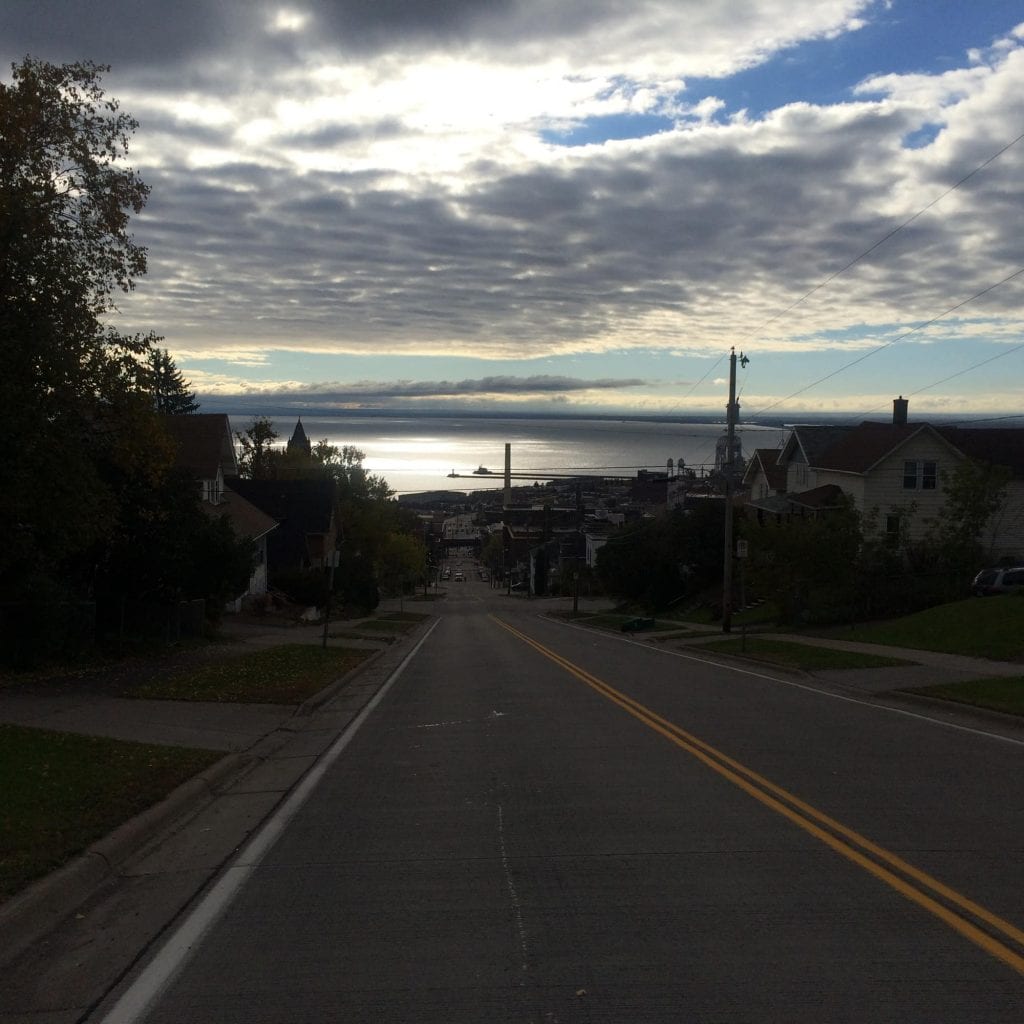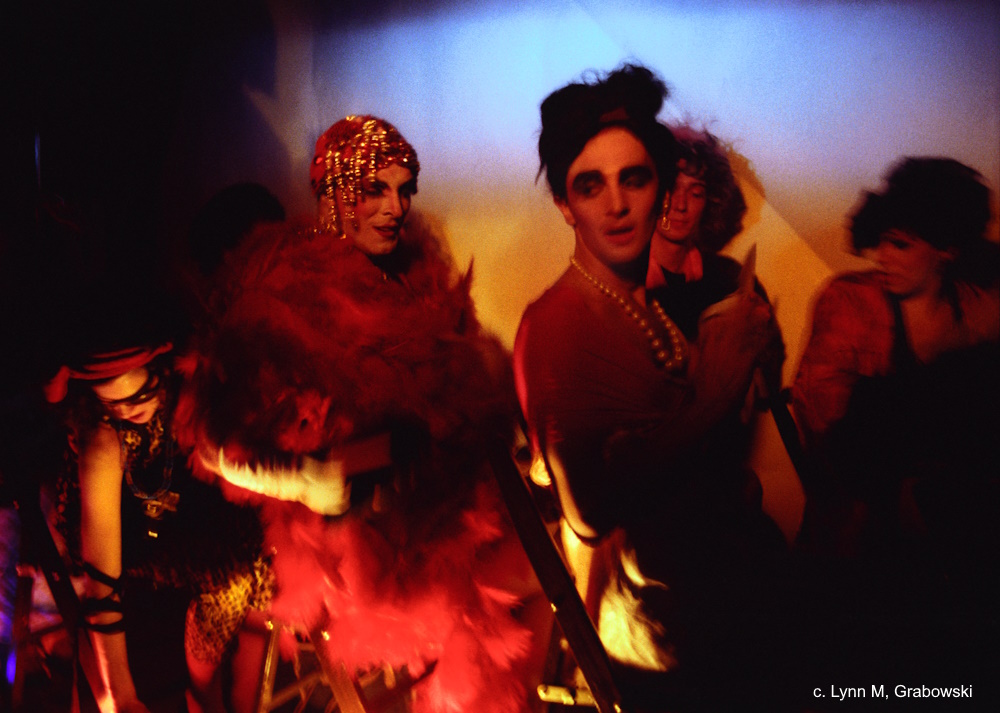
When I was fifteen I walked into one of the mall record stores, where a harmonica was playing, and looked up as though I was in church. You know how you look up, by reflex?
Just like that.
The record, as it turned out, was Blood on the Tracks, and the song was “Tangled Up in Blue.” I later found out from the words, though I heard instantly in the music, that the record was about the road. It was about a life lived from place to place, person to person, job to job, but ultimately alone. It was about being honest rather than good. It accepted the nature of time and change, and imagined life as a series of episodes and entanglements which add up to an idea. The harmonica poured its heart out and the music glittered like sunlight on the spokes of a wheel or the surface of a stream. That moment was one of those recognitions of how things are and are going to be, and that simple yet vaulting song has been like a church to me ever since.
Springtime always brings me back around to Blood on the Tracks, which is about the presence of the past as much as anything else. The bare branches down Folsom Street are pricked by a needlework of new leaves, and the blue sky is a color you look into rather than at. Yesterday, a Friday, I played the record before I left the house. I took the train to work and sat outside to read for half an hour. Nearby, there were big white blossoms in a potted magnolia.
When I got home my room was cool with late-afternoon shadow and the sky was bright above the alley. I set an ashtray on the trunk by the window, started Blood on the Tracks, put my feet up on the desk and let it roll. It was hard to take. These things get harder as you get older, maybe because you realize they’re out of your reach. You realize how difficult they were to achieve, how transparent, what a miracle they are. Beauty walks a razor’s edge, someday I’ll make it mine.
I sat there leaning back against the bookcase and watched the record play out. It opened a window on my past. The past was a room I was looking into, and it was the same as the room I call the present. The things of this room are from the past, the same as my reasons for being here, all of which—the books, the trunk, the room, my reasons—are of the present, too. The past exists on the same plane as the present, with its wives and friends who come and go and the difficulties of communication and the permanence of impermanent relations and vice versa. A few weeks ago I had a tough conversation with my second wife, one of those conversations in which you can hear how things are and how they’re going to be. There are scenes and utterances that’ll be with me forever. The guilt I’ve gotten past. What’s still standing, what’s hardest to accept, is the minor tragedy that both of us are right. There’s no turning back. There’s no help for it, there’s no one to call, there’s nothing much to say about it because it just is. And it’s always now.
When the record was done I swept and straightened the room and stacked some books on the bare floor. Then I went to a party that the warm weather had engendered as naturally as it brought forth the buds, walking through the dusk, inhaling jasmine so sweet it was sour, and gardenia, and other things I couldn’t name. I didn’t want to go, I had nothing to say. I didn’t want to talk, or listen to other people talk. The sky was emptying out. A bright pink contrail, which looked as permanent as a scar, had disappeared without a trace when I looked again.
At Lee and Rebecca’s, everywhere I turned there were bottles of liquor and wine and mixers, and there were olive spears and fruit, and everyone was mixing and sipping delicious-looking and civilized martinis in cold metal shakers and Campari-&-sodas with orange slices and bourbons on the rocks, but my momentary temptation to have a drink was an ember easily stamped out, because it’s been a long time already and I have, hopefully, a long way to go.
It frightens me, the awful truth
of how sweet life can be . . .
*
On Saturday morning I folded up the bed, made a pot of tea, and wrote all that while listening to the record again. Then I went to the racetrack.
I rode the train to the East Bay and got off at North Berkeley. There I left the station and crossed the road to where a cab driver was standing under a tree. There were three riders in his taxi waiting for a fourth. I squeezed in and off we went, handing money over the seat, two-fifty each, the usual silent Bryl-creamed party in a blue windbreaker who rode up front, a shrunken man in an old suit and turban, and a sizeable woman who said if she won she was going to buy a new pair of shoes. Berkeley was a few degrees warmer, a month further into spring. We rode through streets of bungalows and yellow flowers in overgrown lawns, under the freeway to the bay.
At the curb we wished each other luck and went our separate ways. I took a Form, program, and coffee to the grandstand. The morning was spread below me with the Berkeley hills beyond. Sprinklers arced on the infield grass, which was mown in stripes. Slow tractors overturned the dark earth of the track, followed by the water trucks, which cooled it all down.
I had a bad day out there. I got shut out of a horse that won and paid fifty bucks, and then I had two out of three horses in the next five trifectas. Pete showed up and we caught a small trifecta that brought me about halfway back. On our way out he wanted to watch them come around again, so we stopped and waited by the rail. I leaned on the fence, watching a bumblebee hovering above its shadow on the dirt. Funny how quiet it is when they come around. All you hear is the horses’ breathing, and now and then a whip . . .
*
Today, a Sunday, I stood in the back door. Blazing sunlight had chosen a white flower and filled it with more light than it could hold, before moving on. Around three-thirty I took my laundry around the corner. The shadows were shot with sunlight, and the cool air carried the sun’s warmth. Everyone on the street looked a little blinded by the light, like they didn’t know what to do with themselves and they were waiting for it to die down a little . . .
It’s taken me four years to see that I live on the prettiest street in San Francisco. The trees won me over, the eloquent double row of elms in both directions.
Those trees hang fully leafed now, slaves to life, like everyone else.
“April Fool’s Day” is taken from Mike DeCapite’s short-prose collection Radiant Fog. It was first published in angle magazine, and later appeared at The Boogie Woogie Flu. Find more at http://sparklestreet.com/MikeDecapite.html.



